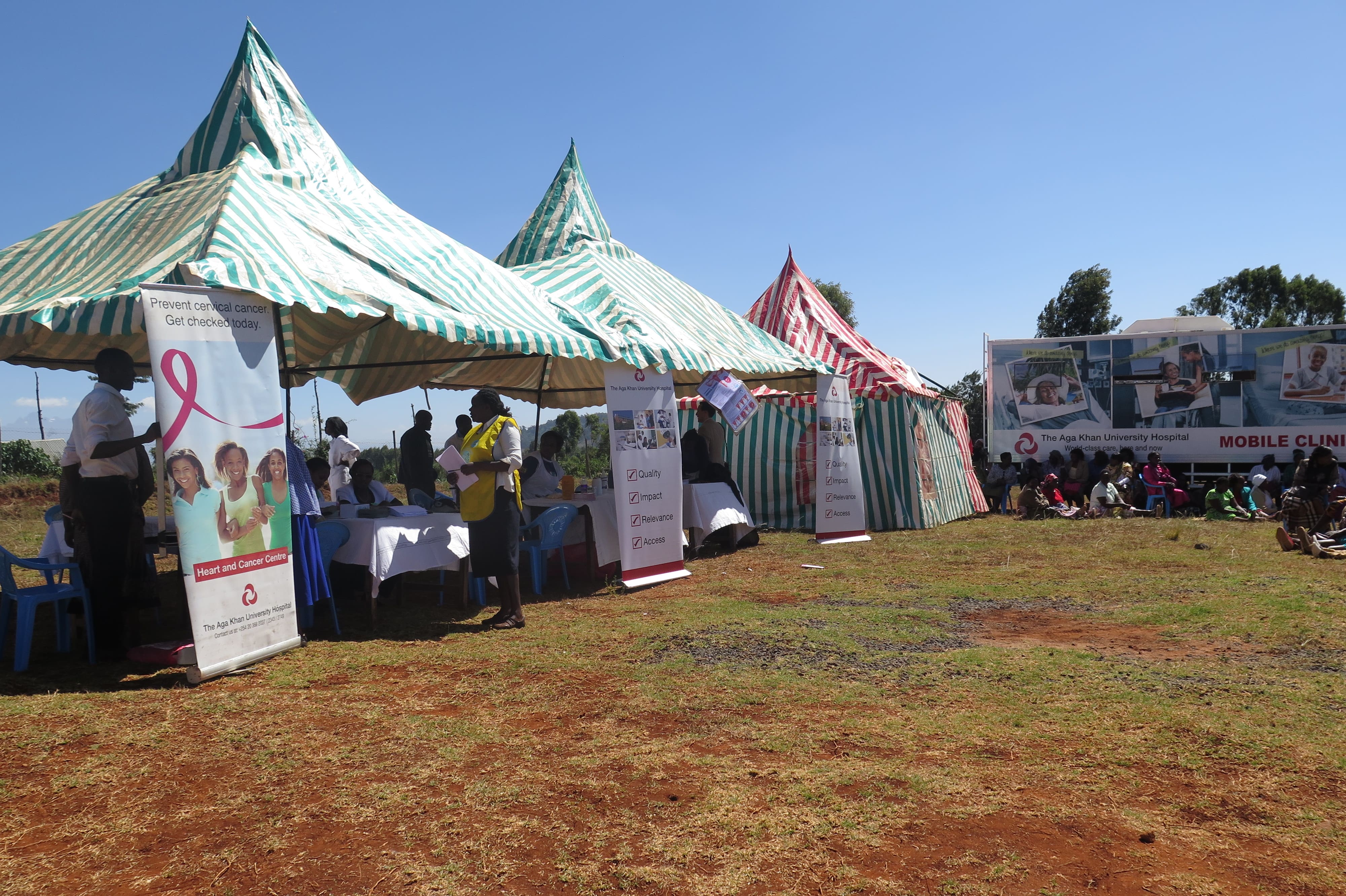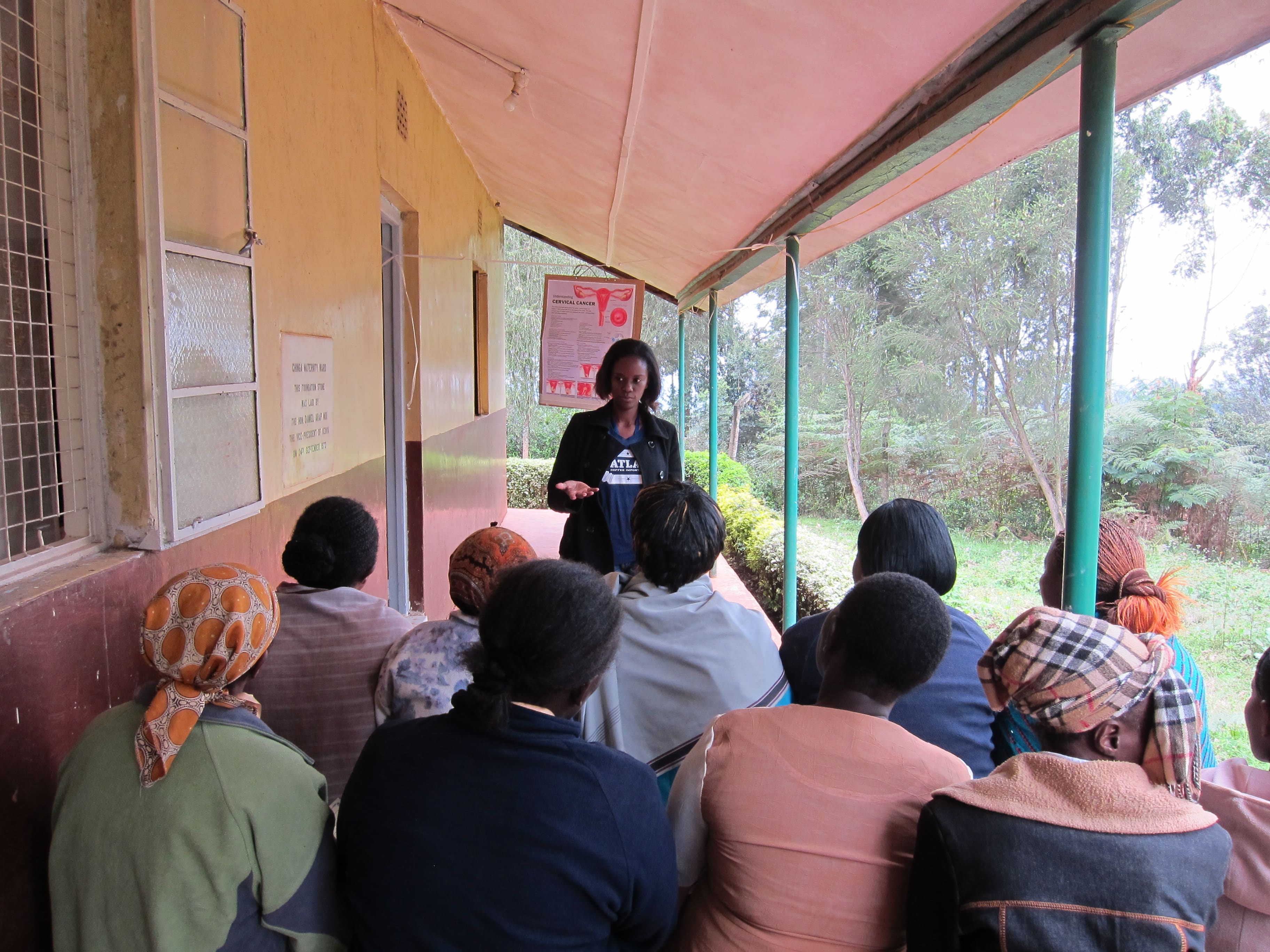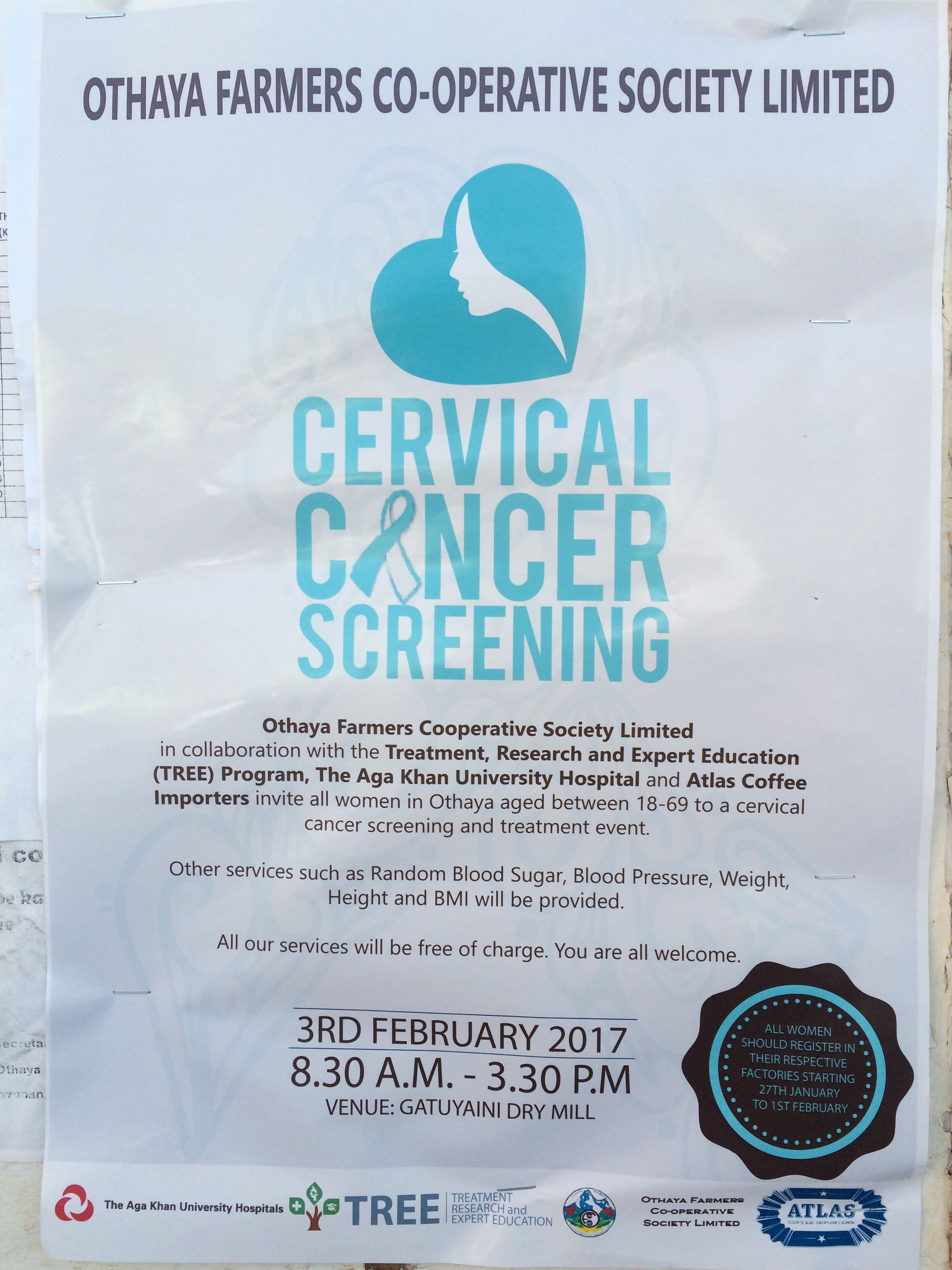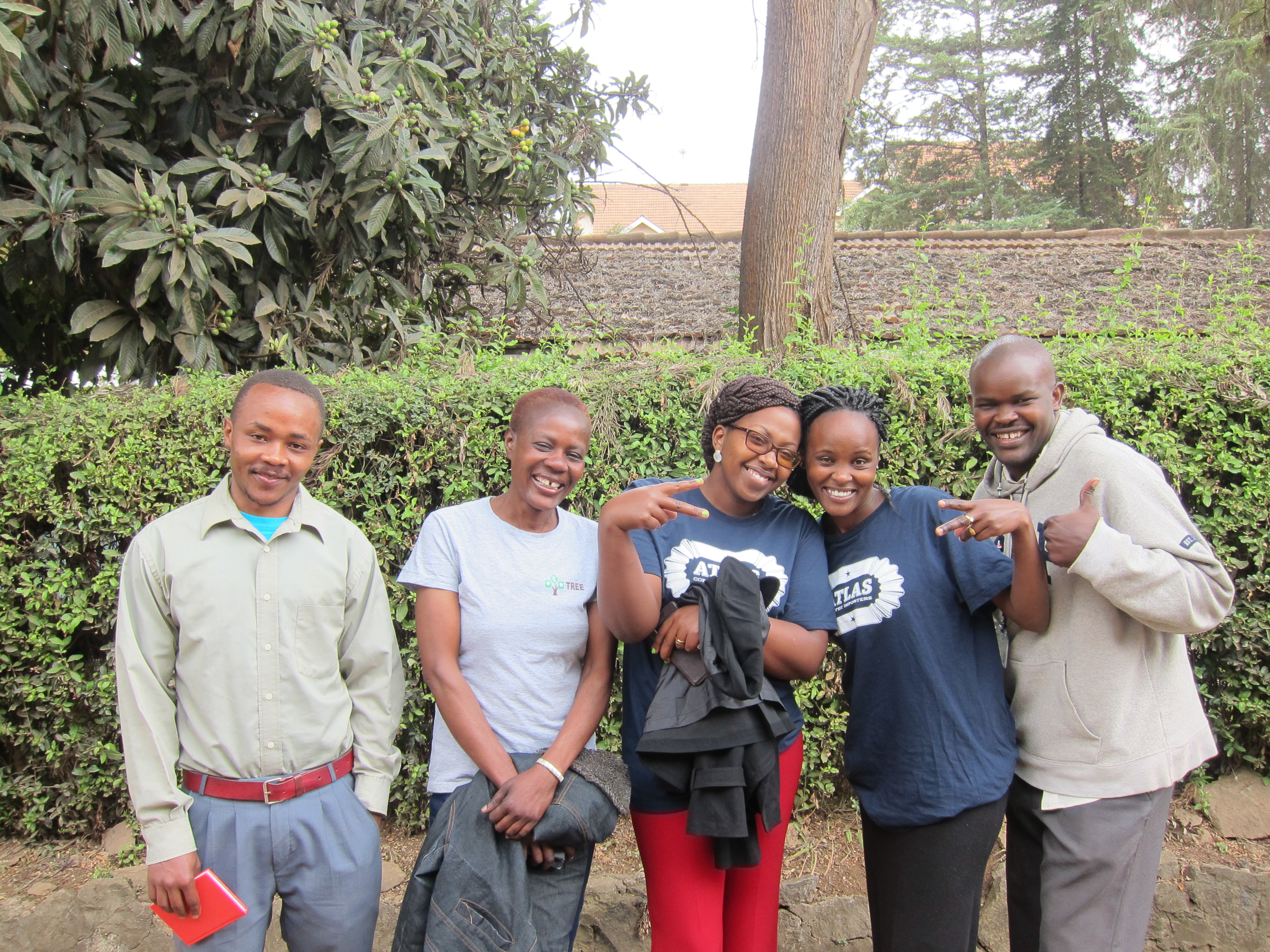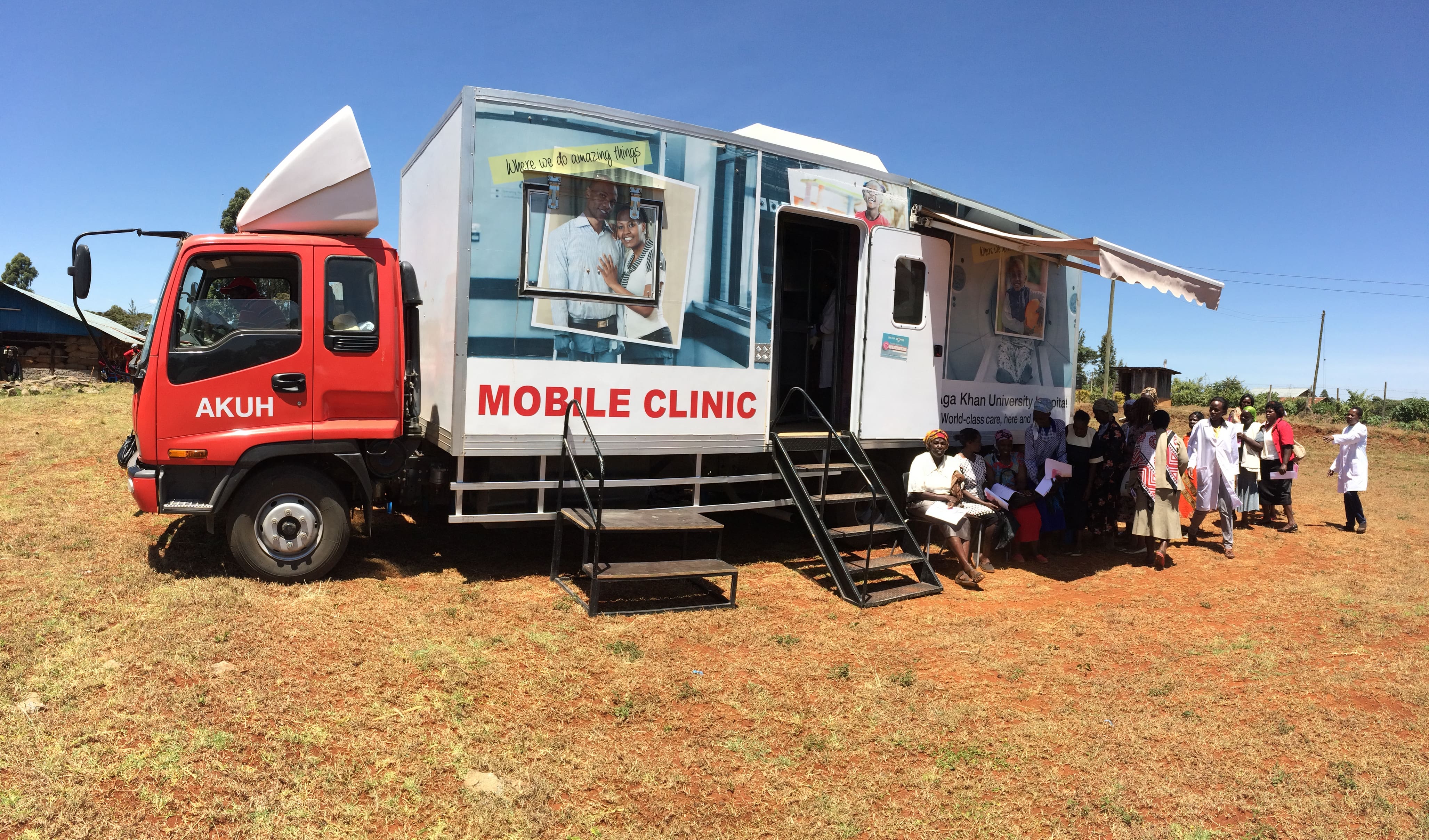Sometimes the greatest fortunes come from the most unexpected encounters.
In 2015, two University of Washington (UW) staff who had never previously met happened to sit down next to each other at a green coffee grading workshop at the Specialty Coffee Association (SCA) Expo in Seattle.
Joseph Maurey is the manager of UW’s “Husky Grind” program, which oversees coffee roasting, training and preparation for the majority of the campus’ food service facilities and specialty cafes. Joseph was attending the SCA Expo for professional development reasons, expanding his knowledge and practical expertise for his role at UW.
Dr. Michael Chung is a UW professor and practicing epidemiologist, studying and treating infectious diseases from his home base in Nairobi, Kenya. Dr. Chung was attending the SCA Expo out of pure enthusiasm for coffee. His role at UW requires him to visit Seattle several times each year, which means lots of jet-lag to manage. After many years of drinking mediocre coffee to regulate said jet-lag, Dr. Chung had a transformative experience at a Seattle café that piqued his interest in learning more about exactly what makes specialty coffee so special. When he learned that his home country of Kenya produces some of the best specialty coffee in the world, his interest deepened and curiosity bloomed.
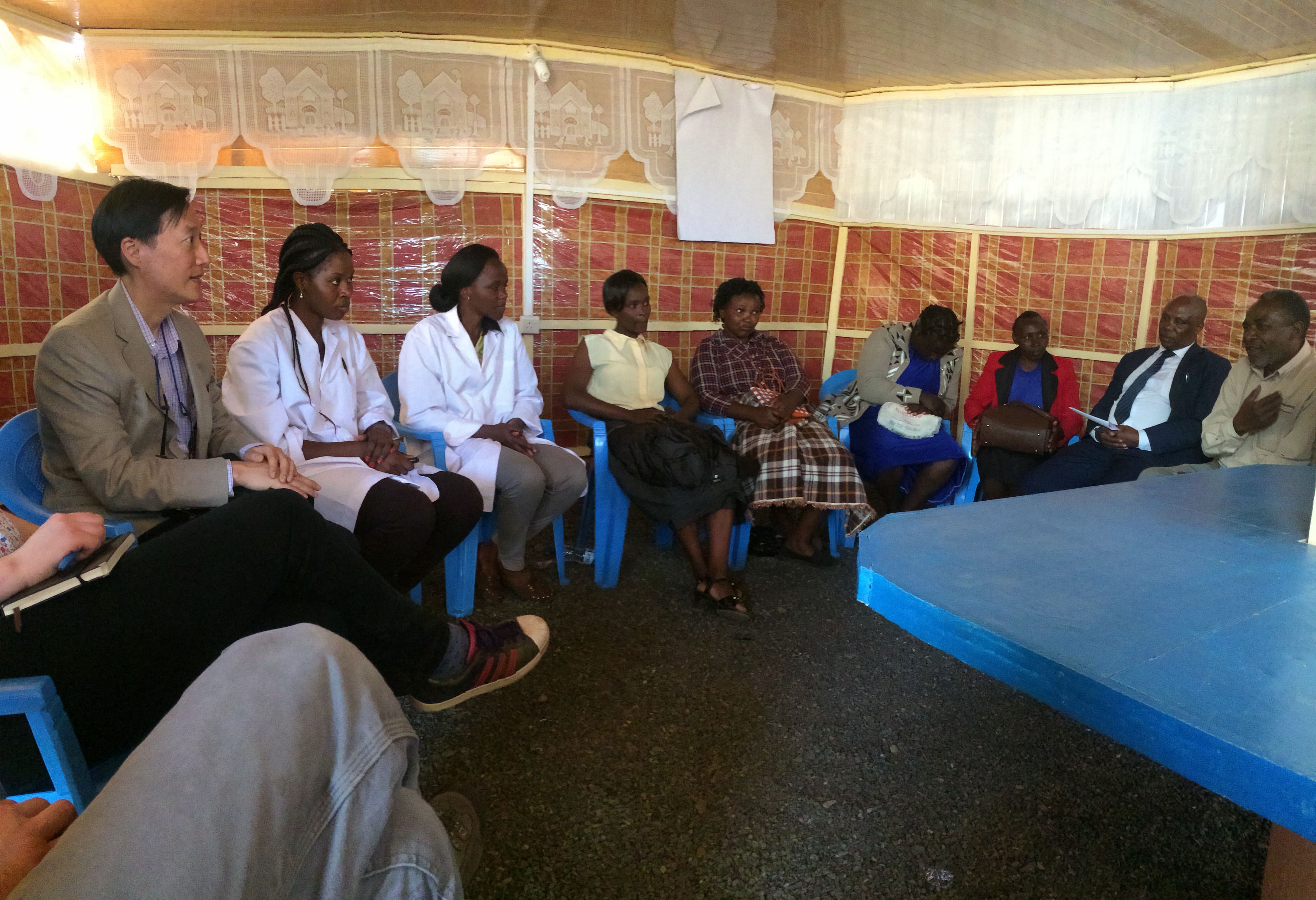
Dr. Michael Chung (left) debriefing with the nurses and Othaya FCS board of directors after a recent screening event.
Joseph and Dr. Chung spent the bulk of the SCA green coffee grading workshop focused on the presentation. It wasn’t until standing up to leave at the end of the session that they looked at each other and realized both of their name badges said “University of Washington.” After some conversation about their mutual roles and affinities for coffee, Joseph mentioned that one of his green coffee sources for the Husky Grind program is Atlas Coffee Importers, just a few miles from the UW campus in the Greenwood neighborhood of Seattle. Joseph told Dr. Chung about Atlas’ investments in developing long-term relationships with coffee farmers. Dr. Chung told Joseph about his own health care work in Kenya, and together they approached Atlas’ Chief Operating Officer Jennifer Roberts with a brilliant idea.
Dr. Chung is director of a program operated in Kenya by the UW called Treatment, Research and Expert Education, or TREE for short.
From the UW website:
“TREE is dedicated to addressing the health needs of people living in resource-limited settings. Dr. Chung leads a UW partnership with the University of Nairobi to train fellows to manage the Kenyan HIV epidemic and to give health researchers more skills in information and communication technology (ICT). “
One of Dr. Chung’s primary focal points in Kenya is women’s health, specifically addressing cervical cancer.
The New England Journal of Medicine published a fantastic article in November, 2005 called “Cost-Effectiveness of Cervical-Cancer Screening in Five Developing Countries.” You can find the full article on their website here, which contains a number of critical statistics about cervical cancer. For example:
- Cervical cancer is a leading cause of death from cancer among women in low-resource settings, affecting women at a time of life when they are critical to social and economic stability.
- Cervical cancer is highly preventable through screening programs that facilitate the detection and treatment of precancerous lesions.
- One screening around age 35 reduces the lifetime risk of invasive cervical cancer by around 30%.
- A second screening further reduces this risk by another 40%.
- A third screening even further reduces lifetime risk of invasive cervical cancer by yet another 15%.
- The average cost per person for three screenings in one lifetime is less than USD $110, not including costs of any associated treatments.
Atlas for many years has purchased coffee from cooperative societies in Kenya’s Nyeri County. Consistently, some of the highest quality coffees we’ve seen from Nyeri come from the 19 cooperative members of Othaya Farmers Cooperative Society (FCS,) based in Othaya town. Each member coop has its own wet mill and drying area (all raised beds,) and their coffees are sold under the coop’s name. Gatuyaini, Ichamama, Rukira and Mahiga are a few of these well-known cooperatives.
As Atlas has increased the volume of our purchases from Kenya and focused our buying on Othaya coops, we’ve gotten to know some of the members of the Othaya FCS board of directors and many of the individual mill managers. Othaya FCS’ 19 coops serve over 15,000 small-holder farming families, and women are very often heads of these households. With so many individuals involved in Othaya FCS’ supply chain, and Atlas’ purchases spread over several of these coops each year, it was a challenge to find an effective way to reinvest in Othaya FCS as a partner.
Back to the brilliant idea. The University of Washington has strong programs in both specialty coffee and rural healthcare in Kenya. Atlas and our roaster partners want to support our strong farmer relationships in Kenya but lacked capacity to roll out an impactful program on the ground. The more we discussed the possibilities, the more an Atlas – UW collaboration seemed like a natural and exciting prospect.
Since 2016 Atlas has been partnered with Aga Khan University Hospital (AKUH) in Nairobi and the UW TREE program to deliver cervical cancer screening programs to coffee farming communities in Kenya. Strong coffee farming families are responsible for the extraordinary Kenya coffees we’re proud to offer. Dollar for dollar, there’s no better way for us to invest in the health and security of these families than by helping to address women’s health.
Speaking of dollars, funding is the only factor limiting the extent of the incredible work that UW TREE and AKUH can do together. Many roasters are familiar with the Penny-Per-Pound check-off programs used by such great organizations as World Coffee Research and Coffeelands Foundation. Through this check-off program, roasters can elect to have a penny-per-pound added to their purchase price from Atlas. Atlas then distributes the funds to the respective organizations on a quarterly basis. Starting in July 2018, Atlas will also offer a penny-per-pound check-off option to support UW TREE and AKUH’s health campaigns in East Africa. If you're an Atlas customer and you'd like to participate, feel free to email sales@atlascoffee.com or call anytime, and your green coffee sales rep will set you up.
Last, but not least, UW TREE has an online donation portal from their website that makes contributing to their programs easy. Lump sum contributions are extremely helpful for covering larger program expenses like equipment, plus the donation portal provides a tax-deductible receipt.
To sum up, there are THREE easy and exciting ways to support farmer health in East Africa:
- Buy Kenya Coffee! Five cents/lb will go directly to support our women’s health campaign in Kenya.
- Sign up for our East African Health penny-per-pound check-off program! One penny from each pound of any coffee (not only Kenya) purchased from Atlas will go to support farmer health programs in East Africa.
- Donated directly to the UW TREE program through their online donation portal.
We’ll continue to post with program updates, and ways that the coffee industry can help support TREE’s efforts on the ground. Stay tuned to the Atlas website and social media for news, and thanks in advance for your support!
